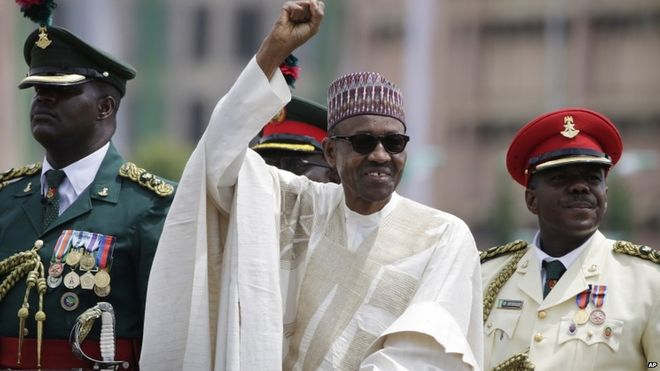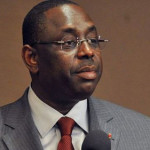Nigeria’s President Muhammadu Buhari finally submitted names to serve in his cabinet, four months since taking office and after announcing he intended to take personal charge of the country’s crucial oil portfolio.
The long-awaited list of nominees was submitted to Senate president Bukola Saraki at the National Assembly buildings in Abuja, the leader of the upper chamber of parliament wrote in a tweet.
Names of the nominees were not immediately disclosed.
Today is a public holiday in Nigeria to mark the 55th anniversary of independence from Britain, meaning senators will not reach a decision to approve the candidates before parliament resumes next Tuesday.
Buhari, who has been running the country with permanent secretaries (civil servants) at government ministries, on Tuesday evening said he would appoint himself minister of petroleum resources.
A junior minister will oversee the day-to-day affairs in the sector, which provides the majority of government revenue, his spokesman Femi Adesina confirmed to AFP.
Buhari, 72, has made stopping the rot in the oil sector a priority, as he seeks to cut graft and put the country’s crippled, crude-dependent finances on a firmer footing.
OPEC-member Nigeria — Africa’s number one crude producer and biggest economy — has been hit badly by a slump in global oil prices since last year, squeezing government revenue.
Oil accounts for some 90 percent of Nigeria’s foreign exchange earnings.
The president has vowed to recover “mind-boggling” sums of stolen oil cash, starting with a drastic overhaul of state-run oil firm, the Nigerian National Petroleum Company (NNPC).
The NNPC has become a byword for corruption and last year was accused of failing to remit $20 billion (18 billion euros) in revenue to the central bank.
The former military ruler Buhari has vowed that corruption and the corrupt will have no place in his government and vetting of candidates has been seen as delaying his nomination of senior ministers.
Buhari has prior experience of dealing with the oil industry. In 1977, he was oil minister under General Olusegun Obasanjo and helped establish the NNPC.
He was later in charge of the Petroleum Trust Fund during the time of General Sani Abacha in the 1990s.
A committee advising Buhari on policy before he took office has recommended he streamlines the number of ministries and ministers.
He has already moved to revamp the NNPC, sacking the entire board, announcing a probe into opaque accounting practices and appointing a new boss to make the company more transparent and profitable.
Malte Liewerscheidt, senior Africa analyst at risk consultancy Verisk Maplecroft, said Buhari’s decision “furnishes him with maximum power to push through necessary reforms” in the oil sector.
It also demonstrated the importance he places on overhauling the industry but the analyst cautioned that concentrating powers “could send the wrong signal for the reform path ahead”.
“Concentration of powers is among the chief reasons for the poor performance of Nigeria’s oil sector governance,” Liewerscheidt said in an email.
“Buhari will need to make clear that combining the roles of president and petroleum minister will only be an extraordinary and temporary measure to accelerate reforms.”
Obasanjo also oversaw the oil ministry when he was civilian president from 1999 to 2007 and Buhari will have to guard against the perception of a potential for abuse.
“Buhari’s self-appointment is a high-risk strategy, as it links his fate as president with successful reform of the oil and gas sector,” he added.
“If he fails to deliver tangible successes soon, there will be no minister to shift the blame to.”








